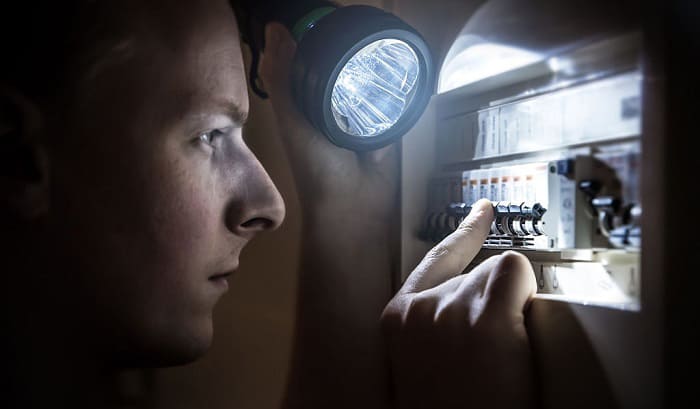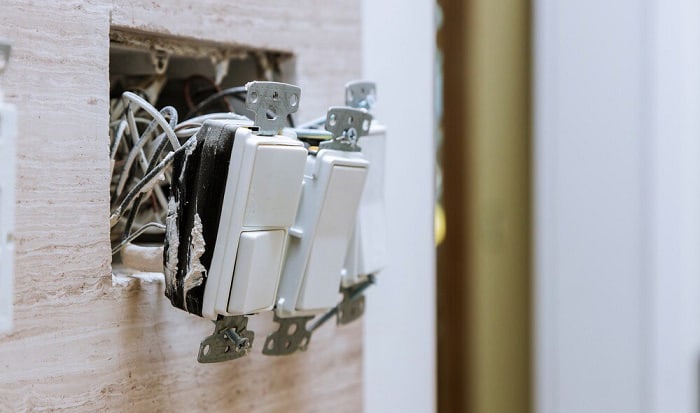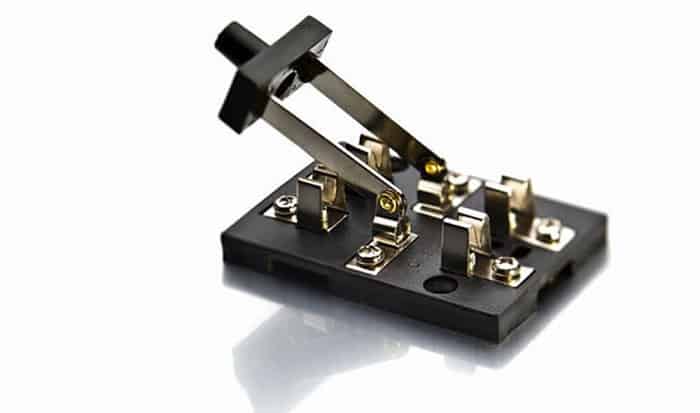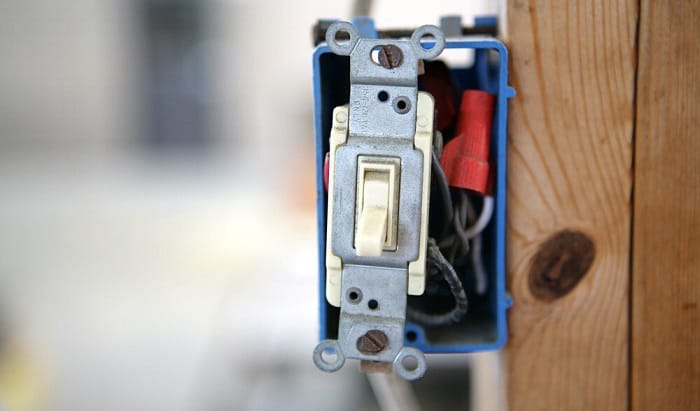Do you want to use electricity without problems, but your light switch is a headache? If a circuit breaker trips when the light switch is turned off, most likely, it’s a result of a common wiring mistake. However, there are other reasons you should keep an eye on.
You’ll never know what will happen if you let this malfunction go unaddressed, so keep reading and see the listed possible reasons. It is necessary to determine your next step on this matter to maintain a healthy power source for your home.
Table of Contents
You Have a Miswiring in a Switch Loop Setup
When you install lights, you buy new fixtures, switches, and perhaps a new set of wiring too.
Now you think you did the proper process — hot-to-hot wire and neutral-to-neutral wire, but in the end, the light switch trips breaker when turned off. Even though you reversed the way you plug the wires, the result stayed the same. This pain in the butt frequently happens when you have a switch loop set up.
A typical DIY guy mistake in a switch loop setup is when all black and white wires are connected. This miswiring causes the light to turn on even though the switch is off. Because it’s improper, it shorts the circuit and trips the breaker when the switch’s on.
To properly rewire this connection, you will need a marker and proceed to the following steps:
- First, the circuit breaker’s black wire connects to the white wire and other black wires that feed other devices.
- Remember to put a black marker on both ends of the switch and the light.
- Then, connect the circuit breaker’s white wire to the light’s and other devices’ white cables.
- Next, connect your switch’s black wire to the black wire for the lights.
- Finally, link all the ground wires together and to the ground screw from the lighting fixture and the box.
A Double Throw Switch is Causing the Problem
If your residence had a history of a bad renovation or electrical rerouting by an untrained contractor, your wirings might be in trouble. It is time to remove the cover panel of your switch box and investigate the situation of your switch inside the box.
A breaker that trips from an off light switch is not common among households today. This occurrence happens because of poor wiring of a light switch like the “Single-Pole, Double Throw” switch.
You’ll know you have this kind of switch when it doesn’t have ON and OFF markings on the switch toggle.
It’s a bad sign if your switch is leaning on the side of the grounded box where it is mounted. A switch is in an improper position when the switch pole screw lies against the switch box and the runner is shorted, which causes the fuse to blow when you turn the lights off.
Also, the breaker will trip if the runner short circuits to the ground or neutral wire somewhere along the wiring’s terminus.
If you have double-throw switches for a three or four-way switch, look out for a shorted traveler wire. It’s possible a switch was removed, causing the travel wire to short-circuit ( Read now how to test a shortstop circuit breaker here).
What If Your Switch is a Single Pole Single Throw?
A standard single throw switch is a typical switch for a light fixture. You can typically find this at home with three screws for hot wires and a ground wire. Its clear difference from a double throw is that the switch toggle has an ON and OFF indicator.
Now, what’s the catch when you have a single pole, single throw switch? Will you have the same dilemma as with the double throw? Well, technically, the answer is yes. You can still experience a problem where a breaker trips when switch is turned off, but for other reasons.
If it’s a standard switch, it is easy to blame the button itself when you have a difficulty like this. The controller can be defective due to a manufacturing failure. However, a simple wiring mistake can trigger the breaker to trip just by turning the switch off.
If the ground wire and the hot wires are close enough to each other, toggling the switch can cause a slight movement that contacts them, then BOOM, a ground fault.
There’s also a possibility that the switch is in neutral. Keep an eye on this wiring mistake because you’re turning the power to the neutral and not the hot wire. Reverse wiring is a huge no-no, so try to fix it as soon as possible.
A Loose Wiring Connection
The fourth and simplest possible reason is a loose wire. Just like other devices at home, your switch gets old, and so does your breaker. When an electrical safety device comes to the point where you’ve been using it for ages, its wiring will eventually give up.
Sloppy wiring of an old switch can cause a breaker to trip, even with the slightest movement of switching it off. Like other issues stated earlier, a loose connection triggers a ground fault or a short circuit.
Furthermore, general wear and tear to your breaker and switch wirings result in repetitive breaker tripping. If you think loose or faulty wiring is not a big deal, watch this video by Andrew Pace:
It is necessary to check your terminal screws and wiring insulations from time to time. Sometimes an old wire turns brittle, and its insulations become damaged, so never let this happen to your switch and CB.
Wiring on the brink of destruction won’t only compromise a breaker but also increase the risk of multiple hazards. Always mind your safety.
Conclusion
There are four possible reasons why your circuit breaker trips when the light switch is turned off. Check if you have a switch loop setup, double/single throw switch, or loose wiring connections. These will help you determine a specific matter causing this problem.
If it’s the wiring that causes the problem, proceed on a safety action immediately.
Addressing an electrical problem is vital for the welfare of our homes. Never take safety for granted, and face the trouble as soon as you can.

I am Edwin Jones, in charge of designing content for Galvinpower. I aspire to use my experiences in marketing to create reliable and necessary information to help our readers. It has been fun to work with Andrew and apply his incredible knowledge to our content.




